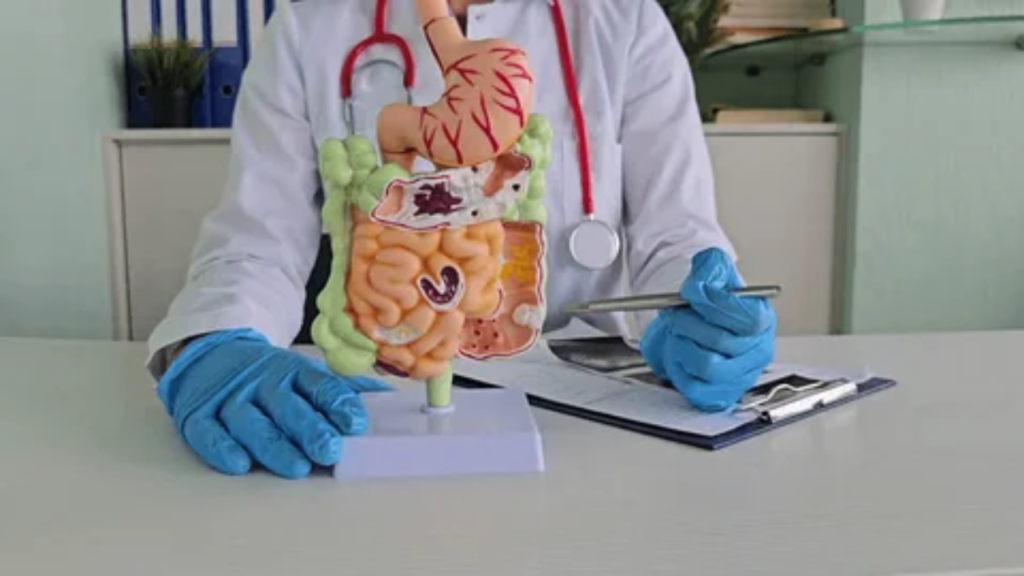Gastroenterology

The Gastroenterology Department at Dokrimare Multispeciality Hospital offers comprehensive care for patients with digestive system disorders. Our expert gastroenterologists specialize in diagnosing and treating conditions related to the esophagus, stomach, intestines, liver, pancreas, and gallbladder. We provide advanced endoscopic procedures, including colonoscopy and gastroscopy, along with non-invasive treatments for liver diseases, acid reflux, ulcers, and inflammatory bowel diseases. Equipped with state-of-the-art technology, our department ensures precise diagnostics and personalized care. At Dokrimare Multispeciality Hospital, we are committed to promoting digestive health and improving the quality of life for our patients through expert medical care.
Gastroenterology Department
Gastroenterology is a branch of medicine focused on the digestive system and its disorders. Common services and procedures in gastroenterology include:
Diagnostic Services:
- Endoscopy (Upper GI Endoscopy, Colonoscopy, Sigmoidoscopy) – Visual examination of the digestive tract to diagnose conditions like ulcers, GERD, or cancers.
- Capsule Endoscopy – A small, pill-sized camera that the patient swallows to capture images of the small intestine.
- ERCP (Endoscopic Retrograde Cholangiopancreatography) – Combines endoscopy and fluoroscopy to diagnose and treat bile or pancreatic duct disorders.
- Liver Function Tests (LFTs) – Blood tests to assess liver health.
- H. pylori Testing – For detecting the bacterium associated with stomach ulcers.
- Breath Tests – For diagnosing conditions like lactose intolerance and bacterial overgrowth in the intestines.
- Ultrasound and MRI of the abdomen – Imaging tests to visualize organs like the liver, pancreas, and gallbladder.
- Manometry – Tests that measure the movement and pressure in the esophagus or anal sphincter to evaluate motility disorders.
- pH Monitoring – To detect acid reflux over a 24-hour period.
Therapeutic Procedures:
- Endoscopic Polypectomy – Removal of polyps from the colon or stomach during endoscopy.
- Hemorrhoid Banding – Minimally invasive treatment for hemorrhoids.
- Stent Placement – Insertion of stents to open blockages in the esophagus, bile ducts, or intestines.
- Endoscopic Ultrasound (EUS) – Used to diagnose and sometimes treat issues like tumors, gallstones, or pancreatitis.
- Paracentesis – Removing fluid from the abdominal cavity, often for patients with liver disease.
- PEG (Percutaneous Endoscopic Gastrostomy) Tube Placement – Inserting a feeding tube into the stomach through the abdomen for long-term feeding.
- Variceal Ligation/Banding – Tying off varices (enlarged veins) to prevent bleeding in patients with liver cirrhosis.
- Endoscopic Mucosal Resection (EMR) – Removal of early-stage cancer or large benign growths from the gastrointestinal tract.
- Biliary Drainage – Used for relieving obstructions in the bile ducts.
- Treatment for Inflammatory Bowel Disease (IBD) – Medications or surgeries for conditions like Crohn’s disease and ulcerative colitis.
Other Services:
- Nutritional Counseling for patients with chronic GI conditions.
- Management of Hepatitis B & C – Includes antiviral therapies and monitoring.
- Pancreatitis Treatment – For both acute and chronic forms.
- Colorectal Cancer Screening – Routine checks for early detection of colorectal cancer.
These services and procedures are vital for diagnosing and managing disorders like GERD, IBS, liver disease, pancreatitis, and gastrointestinal cancers.
